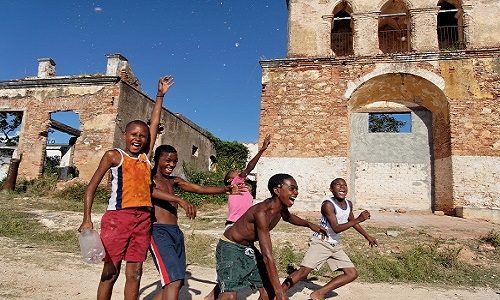6,008 total views, 2 views today
Children are known to be the products of a successful marriage. In Nigeria, a woman is expected to take in and become pregnant immediately after her wedding ceremony. Her stomach is being studied and monitored by people, hoping to see a round shape. The coming of a child brings bundles of joy and happiness to the parents and family members. In some culture, the number of children determines the level of respect people will give her. A woman with no child is likened to a barren woman. A man with a barren wife is always advised to take up another woman or a concubine, who will produce children for him. Such man will be warned against coming to the world without leaving an impact or a successor that will inherit his properties.
When a child is born, everyone will rejoice with the family through visitation and extension of wishes and regards. The new mother and the child will be celebrated. The names to be given to a child will be from the parents, grandparents and close relatives. The Yoruba people have a belief that the nature of the name given to a child has a long way to determine the nature, personality and the behaviour of such a child. A child is named on the eight day. The naming ceremony is always a happy moment. Items such as Kola nut, Salt, Alligator pepper, Sugar are used to dedicate the child and to welcome him or her into the world. Some children are taken to the gods and traditional priests for dedication, blessing and to forsee the future and the journey of the child. If problems are detected, sacrifices and rituals are prescribed for cleansing and to avert the future problem.
In most cases, the circumstances surrounding the birth of the child will determine the names. Also, traditions, the deity and gods worshiped by the household/lineage, and the peculiarities common to the family will determine the nature of the names. Those that are given birth to the clan of drummers, masquerades and traditional worshippers are given names attributed to these gods. For example, the drumming clan are given names such as “AYANdoyin”, “AYANdolu”, those that belong to the “IFA” worshippers’ lineage bear names such as ‘IFAgbemi”, “IFAjimi”, children from the “Ogun” worshippers’ clan are given names such “OGUNjimi”, “OGUNyemi” Those that are given birth to around the period of the death of grandparents or old people are named after the dead ones while some are given names that depict the coming back of the dead relatives. Such names include ‘Yeyetunde/Yetunde’, ‘Iyabo’ , ‘Babatunde’ etc.
Some names are given to children on the basis of the misery surrounding their birth. Normally, during delivery, the head of a child is first seen and the child’s head comes out first. But, in rare circumstances, some children come out with their feet. These children are named “Ige Adubi”. Some children comes out hanging their placentas on their neck ; the male children are called “Ojo” while the female are named “Aina”. Such children are known to be wicked because the way of their birth is usually a painful experience for the mothers.
Those children given birth to during the rainy season are called “Bejide”. During pregnancy, a woman is expected not to menstruate. But, there are exceptions where a woman will still see her monthly period despite her being pregnant. When these children are born, they are named “Ilori”. Children given birth to when the mother is on a journey or trip are named “Abiona”. Children with six fingers are referred to as “Olugbodi”. Twins are called “Taye and Kehinde”. The children born after twins are named “Idowu”, “Alaba”, “Idogbe” consecutively.
